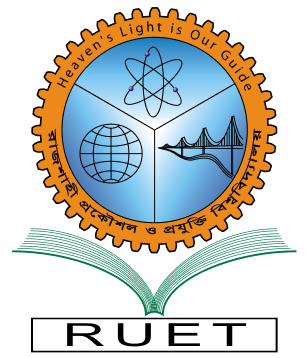Progress Report on SDG 12: Responsible Consumption and Production
Rajshahi University of Engineering & Technology (RUET)
RUET is committed to promoting sustainable consumption and production patterns through campus practices, teaching, research, and community outreach, in line with Sustainable Development Goal 12. The university encourages efficient use of resources, waste minimisation, and circular economy thinking across its activities.
Key Highlights
- Sustainable Curriculum: The Department of Urban & Regional Planning (URP) introduced a course titled “Sustainable Urban Agri‑Food System” in November 2023, covering vertical farming, urban food systems, soil‑water management, and green infrastructure, reflecting RUET’s commitment to linking consumption, production, and sustainability. (BSS)
- Responsible Production Research: The Department of Building Engineering & Construction Management (BECM) published a conference paper (Oct 2023) titled “The Importance of Sustainable Construction Materials and the Challenges Facing Their Widespread Adoption from the Consumers’ Point of View,” demonstrating engagement in responsible production in the built environment. (Icpaceruet)
- Production System Sustainability: The Department of Industrial & Production Engineering lists “Sustainability in product design and supply chain management” as a core research interest of its faculty, showing production-system optimisation with sustainability in focus. (RUET+1)
- Waste Reduction and Recycling: A research paper co-authored by RUET faculty, “Polyethylene Terephthalate (PET) Recycling in Bangladesh: Current Status and Future Sustainability Prospects” (2024), reflects the institution’s involvement in waste-reduction and recycling research — key elements of SDG 12. (IEOM Society)
- Institutional Commitment: While campus-specific data on consumption/waste volumes is limited publicly, RUET’s units (URP, BECM, IPE) show active research and curricular integration of sustainable production/consumption themes, indicating structural commitment.
Impact & Next Steps
Through its teaching, research, and design of sustainable systems, RUET is contributing to responsible consumption and production by embedding sustainability in both curriculum and infrastructure discourse.
- Publishing campus-specific quantitative metrics such as annual waste generation and recycling rates, number of sustainable procurement contracts, volumes of reused/recycled materials, and reduction in resource consumption (water, energy, materials).
- Implementing circular-economy infrastructure on campus (e.g., recycling stations, composting units, reuse programmes, sustainable procurement guidelines) and reporting usage/impact annually.
- Expanding student-led projects and research into consumption-behaviour change, waste-minimisation, material lifecycle analysis, and supply-chain sustainability within Bangladesh’s context.
- Extending community-outreach initiatives focused on responsible consumption and production, e.g., workshops in local schools, manufacturing industries, and urban communities to promote reuse, recycling, and sustainable production practices.
